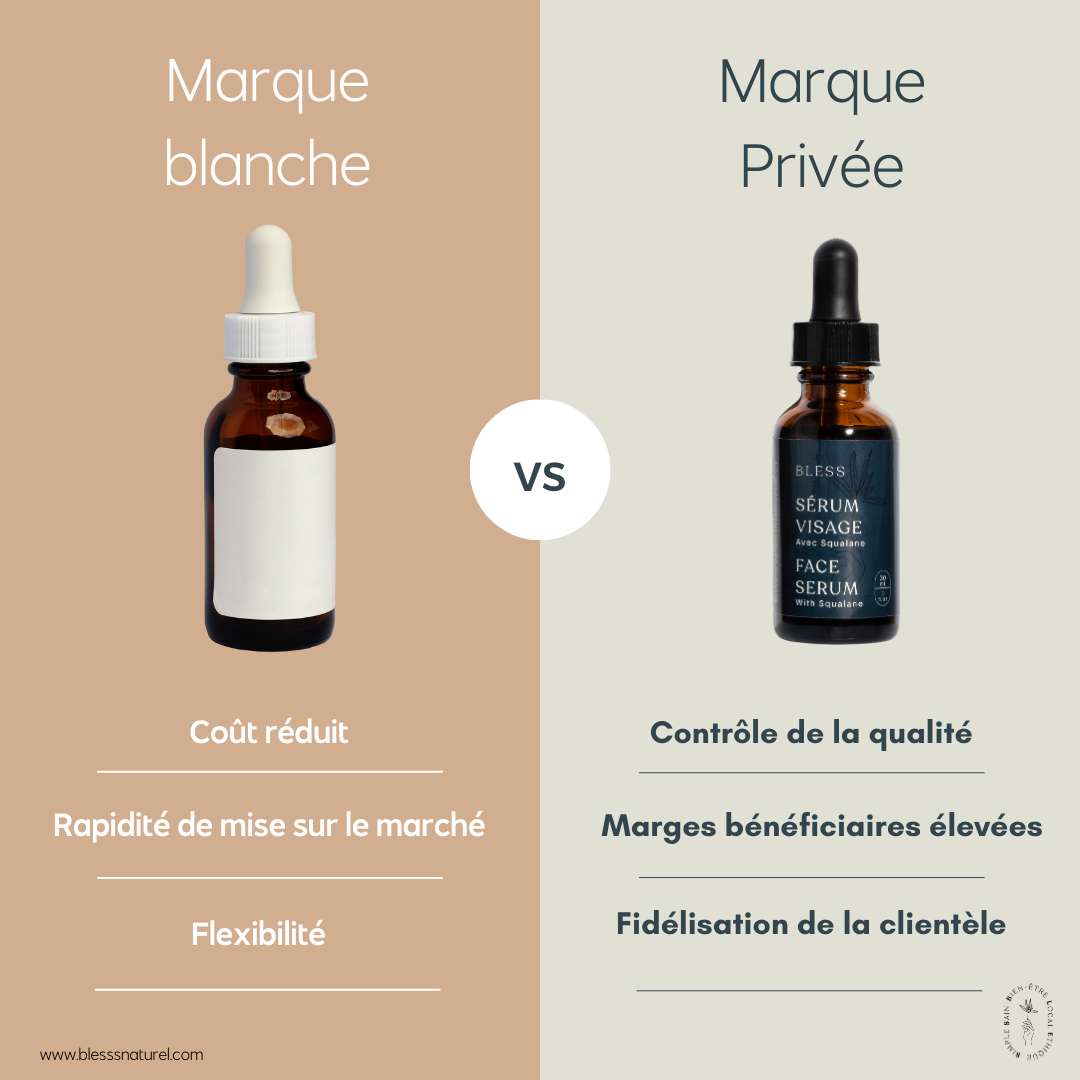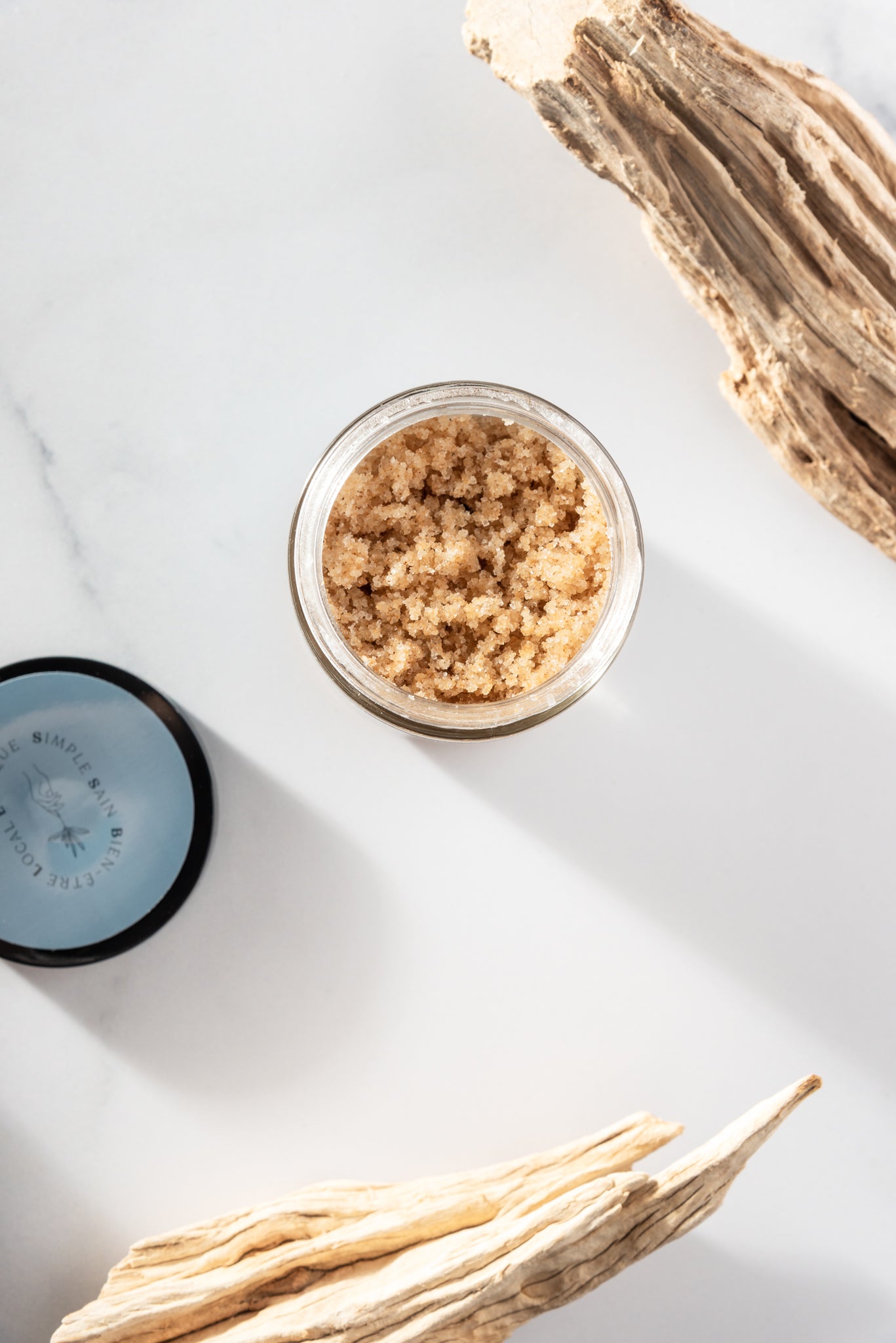
The difference between a private label and a white label in cosmetics
In the cosmetics industry, two terms often come up when discussing the manufacturing and marketing of products: private labels and white labels. While they may seem similar, these concepts have fundamental differences that impact both manufacturers and consumers. Let’s explore what distinguishes a private label from a white label in the field of cosmetics.

What is a private label?
A private label, also known as a distributor brand, is a product created and manufactured by a specialized company but sold under the brand name of a distributor. These products are often exclusive to a specific retailer and can only be found at that location. Private labels allow retailers to differentiate their offerings and build customer loyalty by providing unique products.
Examples of private labels:
- Sephora Collection - The private label skin care products sold under this brand are created specifically for Sephora.
- Kirkland Signature at Costco - A range of products from private label body care products to food items, all under Costco's own brand.
Advantages of private labels:
- Quality control: Retailers have direct control over the formulation and quality of products.
- Profit margins: Often, private labels allow for higher profit margins by eliminating intermediaries.
- Customer loyalty: Offering exclusive products encourages customers to return.
What is a white label?
A white label, on the other hand, refers to a product manufactured by a specialized company and sold to multiple distributors, each putting their own brand on the product. In this case, the same product can be found under different brands depending on the point of sale. White labels are common in sectors where standardized products are acceptable to consumers.
Examples of white labels:
- Generic makeup sold by various retailers under different brands.
- White label skin care products like moisturizers, which can be found under various labels in pharmacies.
Advantages of white labels:
- Reduced cost: Distributors do not need to invest in product development, reducing costs.
- Speed to market: Products are already designed and manufactured, allowing for quick commercialization.
- Flexibility: Distributors can quickly adapt their offerings without significant investment in R&D.
Key differences between private label and white label
Exclusivity vs. general availability:
- Private label skin care products are exclusive to one retailer, while white label skin care products can be sold by multiple distributors.
Brand Control:
- Retailers have total control over the formulation and quality of products in the case of private labels. For white labels, distributors purchase pre-made products and only control the packaging and marketing.
Investment and Risk:
- Private labels require a higher initial investment in product development and quality control but offer better control and higher margins. White labels require less initial investment but offer less differentiation and control.
Practical examples:
- A retailer like Sephora with its own line of cosmetics will invest in the unique formulation of its products. Conversely, a pharmacy might sell generic moisturizers under different brands without investing in the development of these products.
The Impact of Natural Products
The appeal of private label organic skin care and private label body care products has also influenced the dynamics between private labels and white labels. Consumers are increasingly attentive to the ingredients and origins of the products they use daily. Private labels have the opportunity to stand out by offering exclusive formulations based on natural ingredients, thus meeting the expectations of health and environmentally-conscious consumers.
For example, a private label can develop a skin care line with organic plant extracts, providing a unique product that customers won't find elsewhere.
On the other hand, white label skin care products can also offer natural products, but the ability to differentiate is limited since the same products can be sold under different labels. However, this allows retailers to offer natural products at a more competitive price, making quality skin care accessible to a broader audience.

Conclusion
Understanding the distinction between a private label and a white label is crucial for companies looking to enter the cosmetics market. Private labels offer exclusivity and control but require substantial investments. White labels allow for quick and low-cost market entry but with less differentiation.
If you are interested in working with us for your private label skin care needs, contact us and we will be pleased to get in touch with you to discuss your projects.




Leave a comment
This site is protected by hCaptcha and the hCaptcha Privacy Policy and Terms of Service apply.